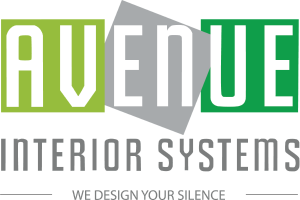The importance of controlling noise at your venue
In the Australian hospitality industry, statistics show that 60% of businesses do not make it past the first year – and some 80% close their doors in under five years. It’s a sobering reminder of why it’s so important that your venue offers guests a comfortable and enjoyable experience.
Yet there’s no doubt that excessive noise levels in a venue will detract from this goal.
It’s not just patrons that suffer from the effects of excess hospitality noise. Staff too are adversely affected, suffering from:
- Disturbed sleep
- Health problems
- Increased stress, and
- Reduced comfort and job satisfaction.
Let’s take a look at four key steps you can take to manage noise levels in your venue.
Steps to manage noise levels in your hospitality venue
1) Identify the sources of noise
The first step in managing noise in a hospitality venue is to identify the sources of noise. This will vary, but most commonly may include:
- Guest activities
- HVAC systems
- Kitchen equipment
- Outdoor noise, or
- Events and functions.
2) Implement noise management policies
It’s a great idea to implement noise management policies to reduce noise levels at your hospitality venue, to ensure a peaceful environment for your guests. This may include setting maximum noise levels for events or functions, enforcing quiet hours in common areas, or using noise-cancelling technology in guest rooms.
3) Monitor noise levels
Regularly monitoring noise levels can help to identify problem areas and take action before they become major issues. This may involve using noise-measuring devices or smartphone apps to measure noise levels in different areas of your venue.
4) Invest in soundproofing and acoustic treatments
Perhaps most importantly, installing soundproofing and acoustic treatments can significantly reduce noise levels in a hospitality venue. Solutions may include installing sound-absorbing materials on walls and ceilings, using acoustic curtains or partitions, or installing double-glazed windows.
What are the recommended noise levels in hospitality venues?

To help ensure a comfortable and safe environment for both guests and staff, it’s important to meet recommended noise levels for the hospitality industry. General guidelines for noise levels in different areas of a hospitality venue are:
- Guest rooms: The recommended noise level for guest rooms is between 30 and 40 decibels (dB) during the day, and between 25 and 35 dB at night. Not surprisingly, this level is the equivalent of a quiet library or a whisper.
- Restaurants and bars: The recommended noise level for restaurants and bars is between 60 and 65 dB – the equivalent of a normal conversation, or background music.
- Reception and lobby areas: The recommended noise level for reception and lobby areas is between 40 and 50 dB. This is equivalent to a quiet office or residential area.
Talk to Avenue about hospitality soundproofing solutions
In the hospitality industry, managing noise levels is crucial for creating a peaceful and relaxing environment for guests. The right soundproofing can lead to positive reviews and repeat business, as well as improving staff morale.
If you need help improving the acoustic quality of your hospitality venue, reach out to Avenue Interior Systems on 1300 827 177 or contact us online.
We can Design Your Silence and provide you with a custom acoustic solution.



